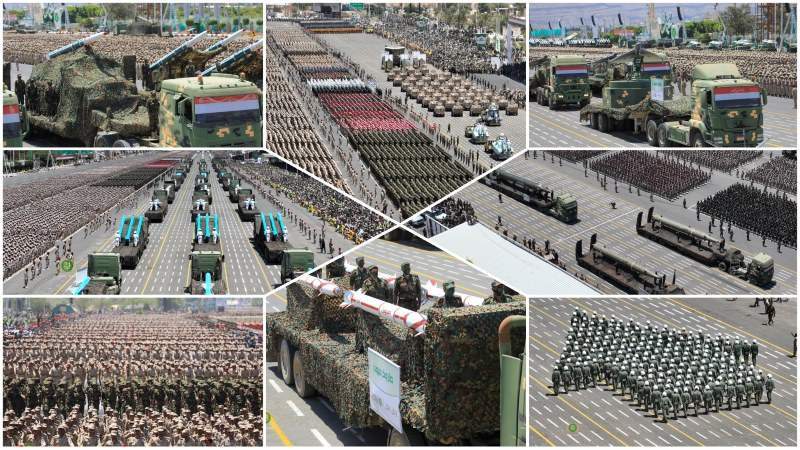How Yemen Redefined the Regional Balance of Power

Yemen: In a new diplomatic move reflecting the Yemeni leadership’s seriousness and commitment to a just peace, Head of the National Delegation Mohammed Abdulsalam revealed details of his meeting with the UN envoy in Muscat, confirming that discussions centered on the agreed roadmap with the Saudi enemy, emphasizing that the humanitarian obligations — foremost among them salary payments and lifting economic restrictions — can no longer tolerate delay or evasion.
Abdulsalam stressed that the practical implementation of the roadmap’s provisions is the true measure of trust in any future negotiation track, warning the United Nations of the grave consequences of continued obstruction in humanitarian files. “Any genuine settlement begins with addressing people’s suffering, not with political calculations,” he said.
These remarks, made amid significant regional shifts, marked a new phase of clarity in Yemen’s position — one that analysts, including Lebanese political activist Waseem Bazzi, described as a “strategic turning point in the Saudi-led coalition’s handling of the Yemeni file, as the balance of power now tilts decisively in Yemen’s favor — politically, militarily, and regionally.”
From a Negotiating Party to a Regional Actor
The Muscat meeting is part of a broader series of clear and assertive political messages from the revolutionary and political leadership in Sana’a — from the speeches of Sayyed Abdulmalik Badr al-Din al-Houthi, to the statements of President Mahdi al-Mashat and Acting Prime Minister Mohammad Muftah, all reaffirming one unified principle: “The era of maneuvering is over. Peace can only come through ending the aggression and blockade and restoring Yemen’s full rights and sovereignty.”
According to Deputy Minister of Information for International Relations, Mohammad Mansour, the Yemeni leadership no longer treats the aggression as an open-ended negotiating issue but as a file to be closed, not managed. “The era of blackmail and procrastination is over,” he stated, emphasizing that peace will only be achieved through ending the aggression and siege and reclaiming all national rights.
Mansour affirmed to Al-Masirah that the leadership is reinforcing internal coordination among political and media institutions to maintain a unified stance, noting that economic pressure or coercion will not deter Sana’a from defending its people’s rights.
Evolving Political Consciousness
Observers view Yemen’s current posture as a clear evolution in its political consciousness — from a reactive stance to that of an equal and influential regional partner shaping negotiations and policy-making.
Political analyst Waseem Bazzi underscored that the Yemeni leadership considers the humanitarian file a fundamental test of any political credibility. He added that Riyadh now fully recognizes the shift in deterrence dynamics, with Yemen’s growing regional influence — notably its support for the Palestinian cause and its strategic control of vital maritime routes — reshaping the regional balance of power.
“Any attempt to stall the implementation of the roadmap,” Bazzi warned, “will be met with parallel escalation. De-escalation is no longer a Saudi favor but an international responsibility. Continued blockade or delay in humanitarian issues will undermine any real prospects for lasting peace.”
A Turning Point in Muscat
The consensus among Yemeni political and cultural elites demonstrates the unity and strategic maturity of the national front. Yemen’s current position rests on three unwavering pillars:
Full sovereignty over land and resources;
Rejection of foreign interference and economic blackmail;
A peace based on equality and partnership, not dependency.
The Muscat meeting was not a mere protocol event — it was a decisive moment that redrew the framework of dialogue between Sana’a and the international community. Yemen is no longer a party to be managed from abroad, but a sovereign actor setting the rhythm of negotiations and reshaping regional priorities.
With Oman preparing for new rounds of mediation, Sana’a enters the next stage from a position of strength and confidence — not need or subordination.
Ultimately, Yemen’s decision remains sovereign, grounded in national interest and guided by the belief that true peace can only be built on power, credibility, and justice — not on concessions.
Translated by Almasirah English website
-
05:07
Israeli glider dropped two bombs in Shebaa, South Lebanon, injuring two locals, after gunfire from Israeli occupation site of Al-Radar targeted the town: Al-Manar
05:06
Al-Manar: 'Israeli' drone targets Harouf town, South Lebanon
01:42
Hezbollah: We call on the government to adopt a new plan to stop aggression and protect citizens
01:42
Hezbollah: We urge full support and political cover for the army to face the enemy
01:41
Hezbollah: We value the president’s call for the army to confront incursions





